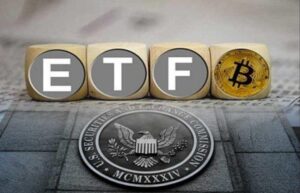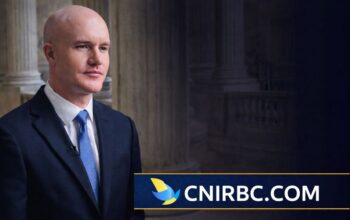 A bitcoin exchange-traded fund (ETF) based on futures looks increasingly likely to be approved by the U.S Securities and Exchange Commission this month, pushing the market more than 30% higher this month
A bitcoin exchange-traded fund (ETF) based on futures looks increasingly likely to be approved by the U.S Securities and Exchange Commission this month, pushing the market more than 30% higher this month
With the possibility of the first Bitcoin futures ETFs being launched as early as next week, bullish sentiment is soaring. This marks a major milestone after nearly a decade of fielding crypto ETF applications.
A bitcoin exchange-traded fund (ETF) based on futures looks increasingly likely to be approved by the U.S Securities and Exchange Commission this month, pushing the market more than 30% higher this month.
In comparison to the dollar, Bitcoin appreciated rapidly. Almost immediately, it recovered and broke near 60k. During the day, it reached an intraday high above $59.8k, which was the highest price since mid-May.
The regulator isn’t likely to delay the products’ introduction to trading next week, the people said, declining to be identified while discussing the decision. These proposals, which are based on futures contracts, provide “significant investor protections” that are different from Bitcoin ETF applications the SEC has previously rejected.
Bitcoin’s volatility can be reduced with institutional capital, since increasing volume levels out price disparities. Increasing Bitcoin’s vertical adoption at an institutional level requires the use of regulated instruments approved by financial regulators. Digital assets are becoming a significant part of investor portfolios as Bitcoin’s status as a hedge against inflation continues to grow.
ETFs ensure more institutional capital is flowing into Bitcoin; most data shows that bull runs occur because of retail mania, as seen at the end of 2020 and in early 2021. In addition to providing exposure to Bitcoin, the new ETF expands investors’ horizons, setting the stage for a bullish price scenario.
A rapid tightening would be detrimental to bitcoin and other liquidity-reliant assets. From November or December onwards, the markets predict $15 billion per month will be cut.
After March 2020, the central bank has purchased Treasury notes worth more than $80 billion and mortgage-backed securities worth more than $40 billion each month. Even so, some market participants remain bullish, with analysts urging us to continue “HODLing” until the first ETF is approved at least.



